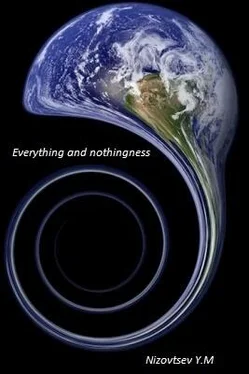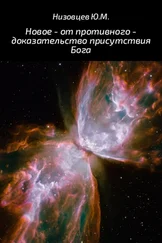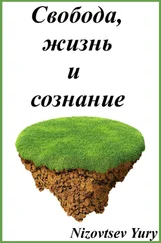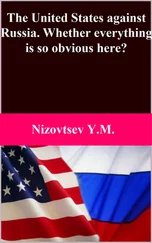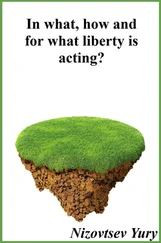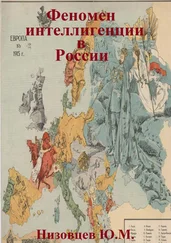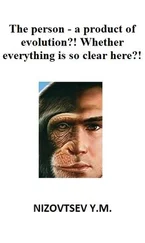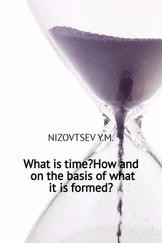Юрий Низовцев - Everything and nothingness
Здесь есть возможность читать онлайн «Юрий Низовцев - Everything and nothingness» — ознакомительный отрывок электронной книги совершенно бесплатно, а после прочтения отрывка купить полную версию. В некоторых случаях можно слушать аудио, скачать через торрент в формате fb2 и присутствует краткое содержание. Издательство: Array SelfPub.ru, Жанр: Философия, История, История, История, beginning_authors, Философия, Биология, Химия, Математика, Физика, Религиозная литература, Религиозная литература, на русском языке. Описание произведения, (предисловие) а так же отзывы посетителей доступны на портале библиотеки ЛибКат.
- Название:Everything and nothingness
- Автор:
- Издательство:Array SelfPub.ru
- Жанр:
- Год:неизвестен
- ISBN:нет данных
- Рейтинг книги:5 / 5. Голосов: 1
-
Избранное:Добавить в избранное
- Отзывы:
-
Ваша оценка:
- 100
- 1
- 2
- 3
- 4
- 5
Everything and nothingness: краткое содержание, описание и аннотация
Предлагаем к чтению аннотацию, описание, краткое содержание или предисловие (зависит от того, что написал сам автор книги «Everything and nothingness»). Если вы не нашли необходимую информацию о книге — напишите в комментариях, мы постараемся отыскать её.
Everything and nothingness — читать онлайн ознакомительный отрывок
Ниже представлен текст книги, разбитый по страницам. Система сохранения места последней прочитанной страницы, позволяет с удобством читать онлайн бесплатно книгу «Everything and nothingness», без необходимости каждый раз заново искать на чём Вы остановились. Поставьте закладку, и сможете в любой момент перейти на страницу, на которой закончили чтение.
Интервал:
Закладка:
The first of philosophers this ratio between consciousness and things quite distinctly, albeit in his own way, understood Berkeley: “IV. It is indeed an Opinion strangely prevailing amongst Men, hat Houses, Mountains, Rivers, and in a word all sensible Objects have an Existence Natural or Real, distinct from their being perceived by the Understanding. But with how great an Assurance and Acquiescence soever this principle may be entertained in the World; yet whoever shall find in his Heart to call it in Question, may, if I mistake not, perceive it to involve a manifest Contradiction. For what are the forementioned Objects but the things we perceive by Sense, and what do we perceive besides our own Ideas or Sensations; and is it not plainly repugnant that any one of these or any Combination of them should exist unperceived?” [9, p. 13].
In this statement of Berkeley traced the idea that without existence of senses and reason is problematic existence of everything else, inasmuch there are no one and nothing to perceive the rest. However, Berkeley out of this draws the conclusion, characteristic for his time: “XXVI. … there is no corporeal or material Substance: it remains therefore that the Cause of Ideas is an incorporeal active Substance or Spirit” [9, p. 19].
Whatever it was, but Berkeley is correct in his assumption that without consciousness the world does not exist, it simply cannot be as beingness: in this case the world is already non-existence, nothingness.
Our own existence means that a contradiction is in the infinite and eternal Uniform, as a result of which it, remaining uniform, infinite and timeless, along with that is discretely in infinite number of finite worlds, acquiring time of existence.
Otherwise, Uniform would have remained in non-existence. This means that infinite and timeless Uniform potentially contains all, including at least aught the passive and aught the active which are able to exist as the projection of Uniform into time, i.e. in finite changes. Question consists only in the mechanism providing this duality: in Uniform potentially there is everything and along with that Uniform is nothingness, inasmuch separately it is non-existence. On the other hand, there is its twin, or a projection in which there is time. In other words, Creation (system of a world order) is the infinite timeless Uniform, and along with that – aught the finite, manifesting itself in time infinitely that we designate as beingness, or existing things in its last embodiment, perceived by us as the real.
The fact that some "mechanism" of manifestation of the world in the form known to us exists one can hardly deny, and most simple its realization is power of God, or power of the spirit.
Such conclusion did Berkeley, who considered possible existence of only the incorporeal, the spiritual.
However the incorporeal is non-being, which must stay in it owing to impossibility of emergence in this "Nothingness" of internal contradictions with their exit "outwards" – in beingness. We observe quite real picture of the world, and the things, which are in it, aren't incorporeal, on the one hand, at this, consciousness, on the other hand, interacting, in particular, with a body, despite own elusiveness, is quite effective and material force which is reflected in the psyche and transformation of sensations into constantly shifting picture of the world.
Husserl, investigating consciousness in its ratio with beingness, despite different fluctuations, ultimately, like Berkeley, acknowledged the possibility of existence of only consciousness even if the whole world will disappear: “Consequently, no real being, no being which is presented and legitimated in consciousness by appearances is necessary to the being of consciousness itself (in the broadest sense, the stream of mental processes)” [10, p. 110].
Avenarius and Mach prove that without consciousness there is no matter, and without matter there is no consciousness so how in experiment distinction between subject and object disappears. On this basis they deny existence out of the person of objective reality.
V. I. Lenin, as a materialist, has put forward against this approach the following objections.
“For every scientist who has not been led astray by professorial philosophy, as well as for every materialist, sensation is indeed the direct connection between consciousness and the external world; it is the transformation of the energy of external excitation into a state of consciousness. This transformation has been, and is, observed by each of us a million times on every hand. The sophism of idealist philosophy consist in the fact that is regards sensation as being not the connection between consciousness and the external world, but a fence, a wall, separated consciousness from the external world – not an image of the external phenomenon corresponding to the sensation, but as the “sole entity.” Avenarius gave but a slightly changed form to this old sophism, which had been already worn threadbare by Bishop Berkley. Since we do not yet know all the conditions of the connection we are constantly observing between sensation and matter organized in a definite way, let us therefore acknowledge the existence of sensation alone – that is the sophism of Avenarius reduces itself to” [1, chapter 1.1]; “The existence of matter does not depend on sensation. Matter is primary. Sensation, thought, consciousness are the supreme product of matter organized in a particular way” [1, chapter 1.2].
In response to this statement of Lenin V. I., we will notice the following.
The person, the lizard, the spider perceive in their own way the same thing and use it accordingly. In some cases, the thing, which is perceived by the person, is unavailable to the worm, not passing through the channels of his sensations, or this thing is felt by the worm completely in a different form and properties. That is, the worm has some own environment, own world anyway and the person isn't able to get into it, and vice versa. In other words, sense organs of various beings form their own environment not from "ready" things, but form it in compliance only with those means which they possess. Therefore the "form" of the thing, which emerges in consciousness of any living being, depends on its sense organs, but not from matter "on the other side" from sensations.
Thus, paramount to the living being in correlation with a thing has process of identification of a thing by means of scanning the surrounding with sense organs as well as existence in individual consciousness though the hidden, but accurately acting form-building abilities, or matrices, which correspond to the capabilities of sense organs of the living being. At this the sense organs on a set and on properties differ significantly for living creatures. For example, birds perceive the magnetic field and they are even able easy to navigate by it, the person does not have this ability. However he was able to understand its nature by expanding the range of their sensations artificially -in this his difference from other living beings, – the person using appropriate instruments, discovered the magnetic field, determined its essence, and then began to use it in own practice.
However no devices cannot penetrate the essence of the "dark matter" and cannot help to the person to reach other measurements of the Universe.
Whatever it was, but the sphere of the surrounding different species of living beings – their own, and this sphere depends on opportunities of their sense organs and to the hidden form-building abilities corresponding to them, which are determined not by individual consciousness in its open expression, but at means of the single consciousness. But for the person the form-building abilities of consciousness partially are discovered also in his ability to revealing by these or those ways of essences of things on the basis of experiment and own intelligence.
Читать дальшеИнтервал:
Закладка:
Похожие книги на «Everything and nothingness»
Представляем Вашему вниманию похожие книги на «Everything and nothingness» списком для выбора. Мы отобрали схожую по названию и смыслу литературу в надежде предоставить читателям больше вариантов отыскать новые, интересные, ещё непрочитанные произведения.
Обсуждение, отзывы о книге «Everything and nothingness» и просто собственные мнения читателей. Оставьте ваши комментарии, напишите, что Вы думаете о произведении, его смысле или главных героях. Укажите что конкретно понравилось, а что нет, и почему Вы так считаете.
